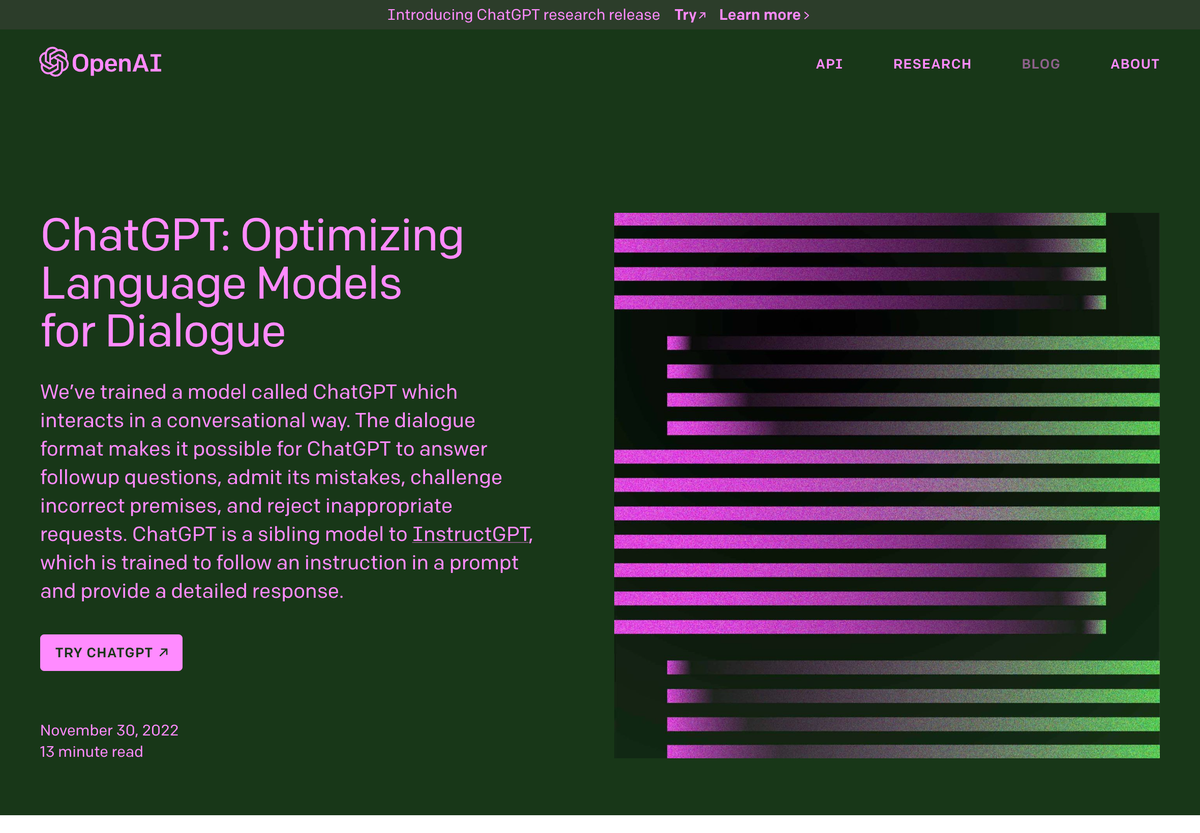Singapore is using DataCamp to build an AI nation
We live in a world that currently generates 2.5 quintillion bytes of data every day, and that number continues to grow. The number of mobile devices exceeds the number of people on the planet, and for years we’ve been hearing claims that 90% of the world’s data was generated in the last two years. The amount of untapped data across all industries is staggering. Building the infrastructure and tools to turn this data into insights and then utilizing it to inform the decision-making process is an ever-present and growing challenge in every industry. The same goes for equipping employees with the skills necessary to manage and analyze all this data. At DataCamp, we’ve seen our customers, partners and collaborators use a variety of approaches to address these challenges.
In a recent chat with Laurence Liew, AI Singapore‘s Director of Industry Innovation for Artificial Intelligence, on our podcast DataFramed, I was excited about AI Singapore’s strategy. I plan to post this interview when DataFramed returns, and it’s a whirlwind tour of the current state of technology and AI in Singapore, and how AI Singapore is working with DataCamp to make Singapore as AI-led as possible, and more.
AI Singapore’s stated mission is:
Consolidate national capabilities in AI through the three pillars of AI research, AI technology and AI innovation to generate social and economic impact, develop local talent, build the AI ecosystem and position Singapore in the world.
What I find exciting about their approach is that they recognize the deep challenges that exist in (i) ensuring that cutting-edge research results are put into the hands of industry practitioners; and (ii) training the entire workforce (and future workforce) on data science, machine learning and AI tools and techniques.
Let’s dive into the three pillars of AI research, AI technology and AI innovation to see how AI Singapore can consider bridging the gap between (i) research and industry, and (ii) the workforce and data skills needed for modern industry in the 21st century.
AI research: seeding high quality
The goal of the AI research pillar is to seed high-quality research efforts to develop foundational and novel AI techniques, algorithms and related technologies – efforts that will ultimately contribute significantly to the other pillars of AI in Singapore. Singapore’s AI research program also encourages national research collaborations and nurtures local AI talent.
Priority research areas include:
Interpretable Artificial Intelligence
Artificial Intelligence in Design
Artificial Intelligence in Meaning Construction
Artificial Intelligence in collaboration with humans
Training on small datasets
This last point is particularly important for Singapore. Singapore is a small country with artificially generated datasets that are small in size compared to large populated countries, making it critical for Singaporean researchers to advance the field of AI research. In short, this pillar lays the foundation for future AI efforts by recognizing the importance of continued research in developing technologies that will be adopted by downstream industries.
Artificial Intelligence Technologies: Addressing Major Challenges
This pillar looks at what AI in Singapore calls Grand Challenges – problems that are really difficult and that AI can (as one of a number of technologies) help solve. Grand Challenges (i) need to have an impact, (ii) need to affect everyone in Singapore, and (iii) must be measurable.
In the face of these Grand Challenges, AI Singapore has prioritized four verticals: healthcare, education, cities and smart nations, and finance. These are the four major problems they are keen to address.
As an introduction, let’s now explore the first vertical, healthcare (you’ll have to wait until the other three challenges are launched to learn the rest). The Healthcare Grand Challenge question is “How can we reduce the prevalence of the Big Three by 20% in the next five years: high blood pressure, high cholesterol, and high blood sugar (or diabetes)?” The Healthcare Grand Challenge has already been launched, and in fact, just two weeks before I spoke with Lawrence, they held an awards ceremony announcing the three teams that received initial funding from the Grand Challenge.
“The three major diseases – high blood pressure, high cholesterol and diabetes – are of great concern to the Singapore government. They put a huge strain on Singapore’s healthcare system and budget. We hope to mitigate at least some of these impacts with the help of AI.” This pillar aims to demonstrate the lasting impact of modern AI on these major challenges.
AI innovation: solving real-world problems
The AI Innovation pillar encompasses a range of programs and strategies designed to put cutting-edge AI research technologies in the hands of industry partners to solve real-world problems.
AI Innovation’s flagship program is the 100 Pilot Initiative, in which companies propose business problems or challenges to AI Singapore that they think could be solved using data science, machine learning or AI.AI Singapore conducts a systematic review of each proposal. If they think it’s an interesting problem that no existing business solution or technology partner can help them with, they step in and provide core funding for the program (more details on the application process and more information can be found here).
What exactly does it look like?AI Singapore contributes SGD250,000 (USD180,000) per project, which is matched by the company on a 1:1 basis.Laurence’s KPI is to execute 100 projects, hence the name 100 Experiments, with a total project funding of SGD25 million.
Since launching in June 2017, they have approved 40 projects and due to the success of the program, they were awarded a second round of government funding to bring the number of projects to 200. There are already projects in healthcare, manufacturing, IoT, anomaly detection, procurement and finance.
The goal of each experiment is to produce a minimum viable product (MVP) within 9 to 18 months. This involves a collaborative effort to co-develop the MVP, which the company can then bring back to the organization for deployment. The funding supports a project team that includes researchers from local universities in Singapore and engineering resources from AI Singapore, including what they call AI apprentices. laurence told me that it’s relatively easy to get professors involved, but they also need AI engineers to develop MVPs. this is where education around data science, machine learning, and AI technologies, tools, and industry applications comes into play. where education in the rapidly evolving ecosystem comes into play.
AI apprenticeship programs: developing future leaders
To help develop the workforce needed to meet the current and growing AI needs of the industry, AI Singapore has launched the AI Apprenticeship Program. This provides Singaporeans with a basic knowledge of AI with the opportunity to acquire in-depth skills. The program combines learning through DataCamp courses and other resources with real-world experience gained through projects under the 100 Pilot Program.
This apprenticeship program is moving fast. It is one of the core programs of the Singapore Artificial Intelligence Center and is run in conjunction with the 100 Experimental Programs (each with two apprentices).
The apprenticeship program is full-time, salaried, and runs for nine months.AI Singapore pays each apprentice a monthly stipend of SGD 3,000 to SGD 5,000 (there is no cost to participate.) Laurence told me that the AI Apprenticeship Program is helping them to solve the AI engineering challenges of the next 10 years. However, upgrading, retraining and deeply training a country doesn’t stop there. They need to upgrade the technical skills of an entire industry, which is why they came up with the idea of AI for Industry.
AI for Industry: democratizing skills
The goal of AI for Industry is to upgrade the technical skills of people working in various verticals. The Singapore Artificial Intelligence Association works closely with DataCamp on this program. It builds on their “AI for All” program, a 3-hour workshop that introduces everyone to modern AI technologies and applications so that they can become savvy consumers of AI products and services. In the AI for All program, participants learn how to identify opportunities and potential use cases in their work and daily lives. They also build a simple AI model using online tools! One of the missions of the Singapore Artificial Intelligence Association is to make not only companies, but also professionals and all others AI-ready. The “Artificial Intelligence for All” program is an evolving result of this mission.
Industrial AI combines AI for All with DataCamp’s Python Data Scientist course, a 100-hour curriculum that covers everything from Python fundamentals to importing, cleaning, and processing data to statistics, machine learning, SQL, package management, data visualization, and more. Participants will complete this course in 12 months. Each month, the Singapore Artificial Intelligence Initiative produces a newsletter based on the course content and hosts a three-hour hands-on machine learning workshop.Laurence says they decided to focus on the DataCamp Python Data Scientist course for the program because “the idea behind it is how to train. ”
But there’s more to education than that. What about those students who have yet to enter industry? That’s where student AI comes into play.
AI for students: empowering the next generation with AI fluency
When Lawrence realized that DataCamp had been providing free access to the DataCamp platform for universities, professors, and students, he wondered if they could take advantage of that and formalize the program so that AI Singapore could help more students join.
“Why are we limited to university students? Can we expand this all the way to secondary school students?”
In Singapore, kids in primary and secondary school are already learning Python – so why should they start formal Python training at university level? To test the viability of his theory, Lawrence enrolled his son in the Data Scientist Python course at DataCamp.
Lawrence reports, “He finished the program. He passed the exam. He’s doing projects at school. It’s interesting that he finished when he was 13. He’s a smart kid who really likes programming. There are a lot of kids like that in Singapore. They can learn these modules. I think if he can do it, I’m sure a lot of other kids can do it too.”
Following this home pilot, Laurence worked closely with DataCamp and announced and launched the program last November. At the time of our conversation, AI Singapore had 7,000 students enrolled in AI for Students, not only from universities but also from polytechnics, secondary schools and more. A few months later, they now have 11,000 students.Laurence told me that the program has generated a lot of interest from school teachers who want to train their children on the platform outside of school hours using Python, data science, AI and machine learning.
Laurence made it clear that student-oriented AI programs are essentially pure DataCamp. the role of AI Singapore is to say, “Hey, we have this platform. It’s free. You come to us as a teacher and say, ‘I’ve looked at the DataCamp platform. I really like it. I want to learn 1 to 10 modules.’” Singapore AI will then work with DataCamp on the back end to make it available to teachers.
On a personal note, this news means a lot to me. My first role at DataCamp was focused on building the basic Python data science curriculum, so most of my first 18 months here were devoted to the Python Data Scientist course. As we’ve grown from a 10-person company to 50 (today, we have over 140 employees!) ), we’ve put a lot of effort and sweat into this course. It required a lot of work from our external instructors and internal content, engineering, product, and marketing teams. I was really happy to hear that the program is now being used to educate 11,000 Singaporean students, including children, for free.
Related posts




